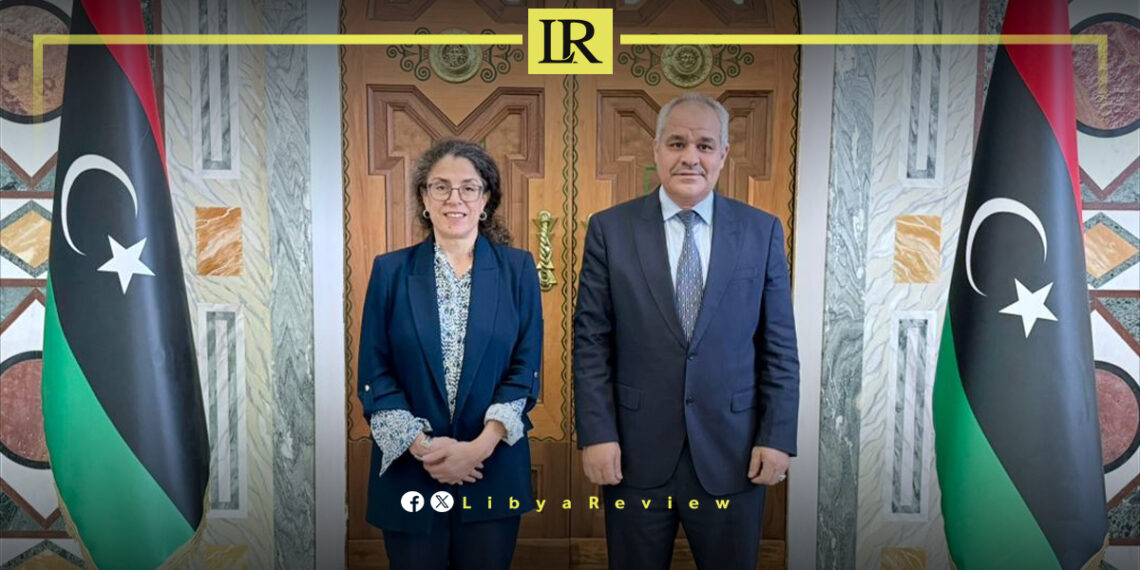On Monday, the acting head of the United Nations Support Mission in Libya (UNSMIL), Stephanie Khoury, held her first official meeting with Naji Issa, the newly appointed Governor of the Central Bank of Libya (CBL).
This meeting, which focused on Libya’s pressing economic issues, highlighted the UN’s support for Libya’s efforts to stabilize the economy, particularly through measures aimed at strengthening the Libyan dinar and addressing the country’s prolonged cash shortage.
Khoury congratulated Issa on his new role, acknowledging the critical responsibilities he shoulders amid Libya’s current economic challenges.
She praised the CBL’s recent steps to stabilize the dinar, reduce liquidity pressures, and create a more stable financial environment. Khoury emphasized that these efforts are essential to fostering broader economic stability and resilience in Libya, especially as the country faces economic and social strain.
Posting about the meeting on her X (formerly Twitter) account, Khoury expressed strong support for the Central Bank’s actions and reaffirmed UNSMIL’s commitment to aiding Libya’s financial stability. She noted that the UN is encouraged by the CBL’s proactive approach to currency stabilization and its resolve to address the cash shortages affecting Libyan citizens.
The meeting also included discussions on the Central Bank’s future plans to ensure transparent and effective management of its resources. Both Khoury and Issa highlighted the importance of rigorous governance and accountability in the CBL’s operations.
Issa assured Khoury that the CBL Board is committed to upholding high standards of professionalism and avoiding conflicts of interest, focusing on building a trustworthy and efficient financial institution for the Libyan people.
Khoury’s endorsement of the Central Bank’s recent initiatives signals a boost of confidence from the international community, reinforcing Libya’s ongoing journey toward economic stabilization and reform.
The UN’s support underscores the shared goal of creating a robust financial system that can adapt to Libya’s unique challenges, promote sustainable growth, and contribute to long-term national stability.
Through its efforts to stabilize the currency and alleviate liquidity challenges, the Central Bank of Libya is positioning itself as a pillar of economic resilience.


